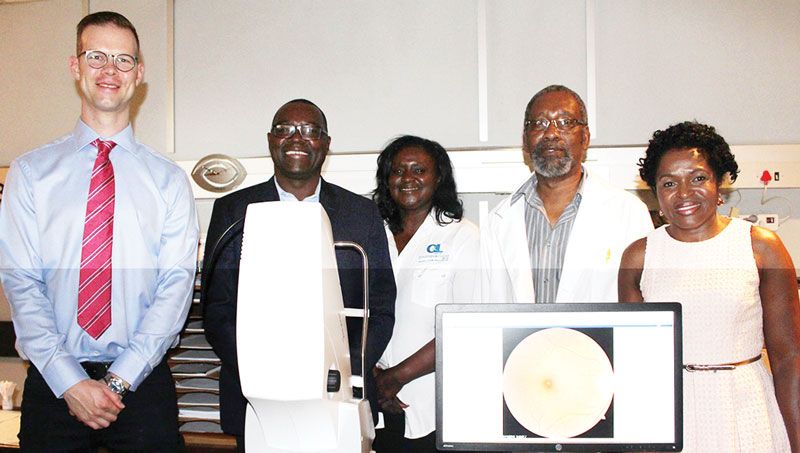
“We need to work as regional and sub-regional blocks to fight diseases and pandemics” – Shangula

The Minister of Health and Social Services, Dr Kalumbi Shangula, stressed the importance of teamwork in battling diseases during a significant roundtable discussion held at the State House last week.
The event, themed “Collaboration for Health Equity,” brought together diverse guests to address health inequalities, HIV/AIDS, tuberculosis (TB), malaria, and pandemics.
Shangula highlighted the establishment of the Directorate of Special Programs within the ministry, focusing on HIV/AIDS, TB, and malaria, emphasizing the need for dedicated attention to these health issues.
Shangula provided insights into Namibia’s progress in combating HIV/AIDS, noting significant declines in incidence, prevalence, and AIDS-related deaths.
“As a measure of this progress, Namibia currently stands at 94-97-95 on the UNAIDS 95-95-95 fast-track targets,” he said.
Shangula praised successful initiatives in HIV testing, treatment, and prevention, especially in preventing mother-to-child transmission.
Addressing TB, he acknowledged Namibia’s high TB burden and outlined strategies for diagnosis, treatment, and community involvement, stressing the need for continued efforts despite declining external funding.
Regarding malaria, Shangula highlighted ongoing challenges, with many cases and deaths in Namibia. He mentioned intensified efforts to combat malaria, with free diagnosis and treatment available in public health facilities.
Discussing COVID-19, Shangula provided statistics on infections and deaths, emphasizing the pandemic’s disruptive impact and the role of inequalities.
“In Namibia, 169,121 people were infected with COVID-19 of which 3,746 lost their lives,” he said while he underscored the disruptive impact of COVID-19 and emphasized the role of inequalities in exacerbating the pandemic’s effects.
Meanwhile, Shangula said partnerships are a vital mechanism in the fight against infectious diseases.
“We cannot end HIV, TB, Malaria, and other epidemics as singular countries. We need to work as regional and sub-regional blocks to fight diseases and pandemics. Diseases do not know borders and therefore responses should extend beyond borders,” he said.
He called for continued support from various stakeholders, including government agencies, international organizations, and civil society, to address health challenges effectively.













































